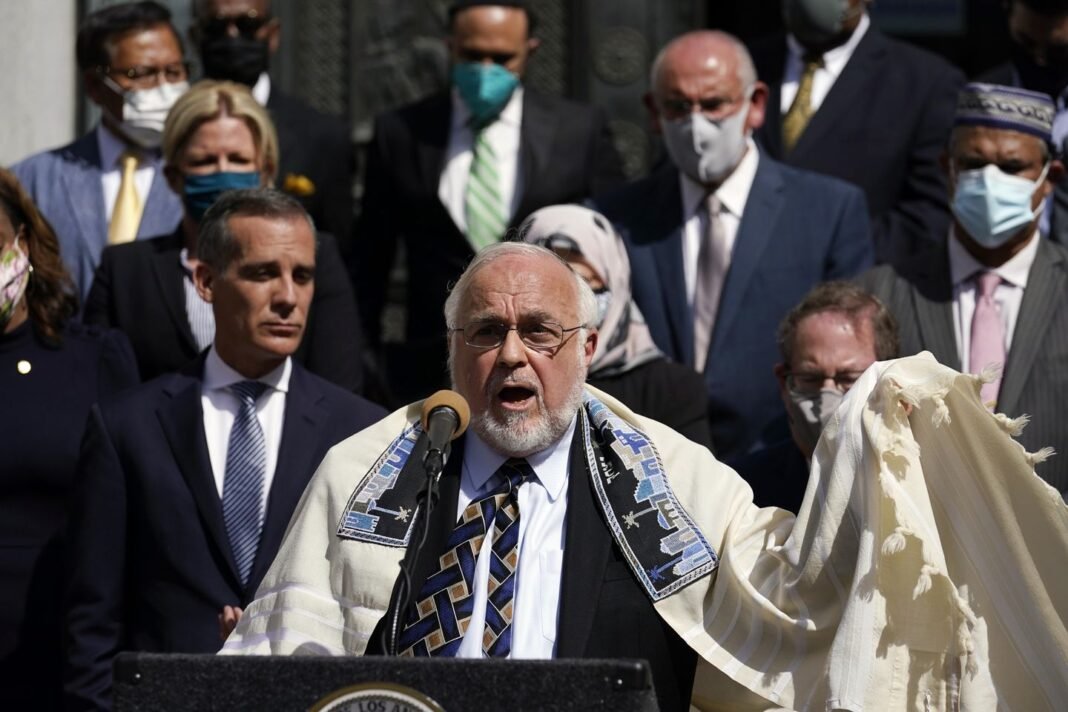The Daily Observer London Desk: Reporter- Jack Brumby
A Russian court sentenced three Jehovah’s Witnesses late last week to prison terms of six and one-half to seven and one-half years, on top of their pre-sentencing detention of 28 months each, the group reported Monday.
The sentences come near the end of a brutal year for members of the Christian group in Russia and were condemned by members of the U.S. Commission on International Religious Freedom.
A total of 127 Witnesses are in Russian Federation prisons as of Wednesday, the group said.
Witness member Aleksandr Rumyantsev, 46, received a sentence of seven and one-half years; church member Sean Pike, 52, a native of Guyana, received a seven-year term; and 59-year-old Eduard Sviridov received a six-and-one-half year sentence.
Rabbi Abraham Cooper, current USCIRF chair, said on X, “Russia’s harsh sentencing of 3 Jehovah’s Witnesses for practicing their faith is unacceptable, especially since they have already endured more than 2 yrs in pretrial detention.”
Separately, USCIRF Commissioner Susie Gelman said, “In 2023, Russian authorities sentenced more than 40 Jehovah’s Witnesses to prison on bogus extremism charges. Nearly 150 are now imprisoned, detained or under house arrest. USCIRF calls for their release & an end to their prosecution.”
According to statements released by the Jehovah’s Witnesses, Mr. Sviridov denied charges of extremism, but rather said members of the group were taught “to show love to people, to maintain good relations with others, to settle differences, to treat everyone with an open mind, to show hospitality.”
Mr. Pike, who has two young daughters, said, “There can be no question of hatred for people or a sense of superiority over anyone. This is contrary to the essence of kindness and virtue. This would not be a manifestation of love for God and people. This is not the Christian way.”
And Mr. Ruymyantsev said he feels his “religious beliefs benefit society and the state, because I live in harmony with the words: ‘Let everyone not achieve his own, but what benefits the other.’”
Russia banned the U.S.-based religious organization in 2017 as an “extremist” group, but the European Court of Human Rights declared the ban unlawful in 2022. The court ordered the Russian Federation either to return properties confiscated from the group or pay $63.7 million in compensation and $3.7 million in damages.
A statement from the organization on Wednesday said Russian authorities had charged or investigated over 790 Witnesses, of which 205 are men and women over 60 years old; an 85-year-old member was the oldest charged.
Russian police and the FSB raided 2,059 homes of Jehovah’s Witnesses in 2023, the organization said, and more than 500 are on a “watch list” of extremists and terrorists. The public listing has prevented Witnesses from getting jobs or having their bank accounts blocked.
Jehovah’s Witnesses spokesman Jarrod Lopes, speaking from the group’s Tuxedo Park, New York, headquarters, said “Russia continues to shamelessly misemploy its anti-extremist legislation to ban, imprison, and at times beat and torture Jehovah’s Witnesses. Doling out an average of six years in prison simply for peaceful Christian worship, Russia’s legal system has become a cathedral of what it hates — extremism.”



